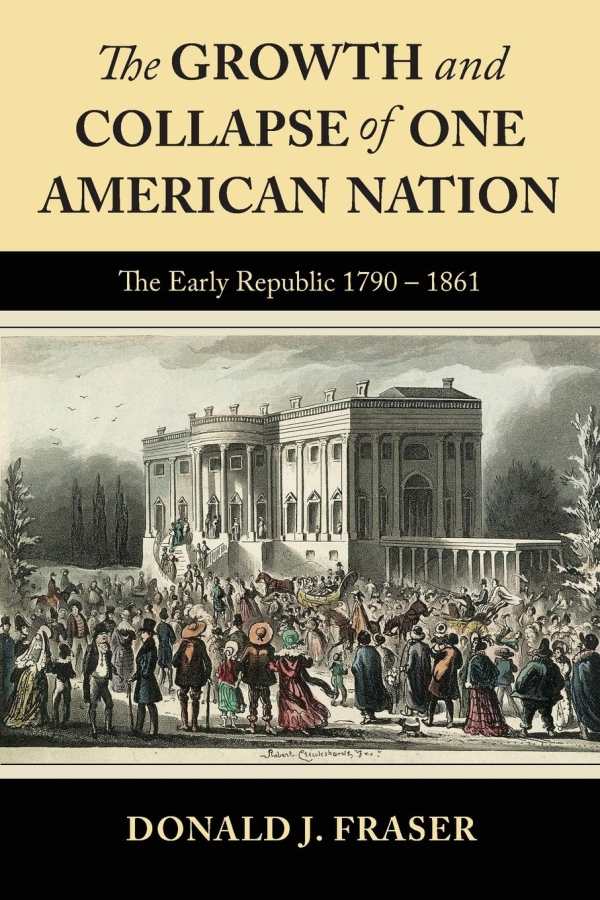The Growth and Collapse of One American Nation
The Early Republic, 1790-1861
The Growth and Collapse of One American Nation adds a convincing perspective to the ongoing conversation about American identity and the nation’s future.
Donald J. Fraser’s strong, research-centered history The Growth and Collapse of One American Nation concerns what makes America unique.
Focused on the early American republic, which lasted from 1790 until 1861, the book considers how the American people were first defined. It addresses historical arguments regarding whether Americans would be a creedal people, united around ideas and values, or be regarded as an ethnic group with a common language, blood, and culture. It engages these questions, which it notes are still being debated today, just as they were debated by the founding fathers and their direct descendants, too.
The book follows a chronological logic, its events described from the earliest to the most recent. It begins just after the ratification of the US Constitution. Thomas Jefferson, James Madison, George Washington, and Alexander Hamilton are highlighted; each had a different interpretation of the goals of the American republic. The book argues that Jefferson and Hamilton formed the far left and the far right respectively, and that Jefferson believed in utopian democracy and the innate goodness of the common man, while Hamilton regarded people as selfish and in need of strong, central authority.
This is an exhaustive history, but its delivery is clear. Topics from law to philosophy to war are covered to support a complex argument that the United States is a creedal nation defined by a shared set of values, including individual liberty, equality, freedom of religion, and the rule of law. To support this view, the book includes a wide array of primary and secondary sources to address important events including the War of 1812, the rise of Jacksonian democracy, and westward expansion and the subsequent lurch towards the Civil War. Some of its arguments are less convincing, as when it invokes genetics and DNA in regards to political preferences, claiming that they are inborn, though it elsewhere criticizes American nationalists for arguing for a genetic definition of the American nation.
Supported by invocations of other scholars and primary and secondary sources, the book includes end notes after each of its fifteen chapters. The major arguments of each chapter are easy to source as a result. The book’s language is direct, and its subheadings and text breaks help when it comes to focusing on specific people or issues.
The Growth and Collapse of One American Nation adds to the ongoing conversation about American identity and the nation’s future.
Reviewed by
Benjamin Welton
Disclosure: This article is not an endorsement, but a review. The publisher of this book provided free copies of the book and paid a small fee to have their book reviewed by a professional reviewer. Foreword Reviews and Clarion Reviews make no guarantee that the publisher will receive a positive review. Foreword Magazine, Inc. is disclosing this in accordance with the Federal Trade Commission’s 16 CFR, Part 255.

